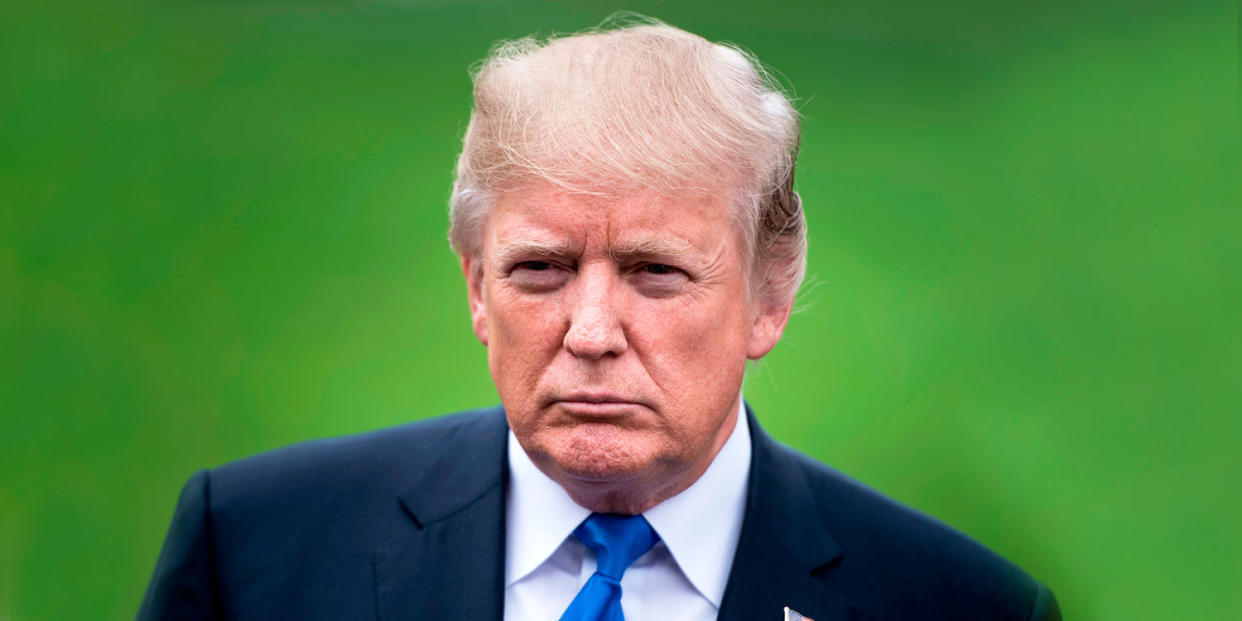What the President Gets Wrong About Broadcast TV

Last week, President Donald Trump sent a warning shot to our nation’s broadcast networks. He suggested that the Federal Communications Commission could revoke the broadcast license for NBC because coverage of his administration has been, in his words, “dishonest,” “disgusting,” and “fake.”
Network news has become so partisan, distorted and fake that licenses must be challenged and, if appropriate, revoked. Not fair to public!
- Donald J. Trump (@realDonaldTrump) October 12, 2017
This criticism is anything but subtle. However, many of our presidents have tussled with the news organizations that cover their efforts. Back in 1798, President John Adams signed a law that made it illegal to print, utter, or publish malicious statements about the federal government. President John Kennedy made clear his dislike of newspaper coverage to his aides. Allies of President Nixon targeted the license renewals of two television stations that were owned by the Washington Post, the newspaper investigating his involvement in Watergate.
Although this tension is as old as the republic, the recent outburst from the executive branch is still cause for concern. The First Amendment is a cornerstone of our democracy. It represents a profound national commitment to free speech. That commitment is undermined when the president seeks to use government power to remove a voice in our national dialogue.
It’s important to remember that even if you don’t like the commentary on Fox & Friends or news coverage on CNN, the First Amendment ensures that what we see on television, hear on the radio, read in print, and interact with on the Internet is free from interference. No government official has the right to use their power to dictate what news organizations can say.
That’s why this remark from the president is so troubling. It’s fundamentally at odds with our constitutional tradition. It’s also wrong on process. It’s simply not how the broadcast licensing system works.
The FCC does not license television networks like NBC, FOX, CBS, or ABC. It only licenses individual broadcast stations. Right now, there are roughly 1,800 full-power television stations across the country. You probably are familiar with their programming. Your local stations are often affiliates of these networks. You might watch some of their most popular shows, like This Is Us, Blackish, and NCIS. In addition to this national programming, these stations offer local news, weather, and traffic reports.
Every eight years the FCC reviews these licenses to make sure they are following the rules governing broadcasting, such as technical guidelines to prevent signal interference, and ensuring they are serving their local communities. This review, however, does not involve the government making editorial decisions about content. Doing so would be an affront to our First Amendment tradition.
This is a responsibility I, as an FCC commissioner, take seriously. I am one of five commissioners on the FCC, and I was the first to speak up after the president’s comments. Some stayed silent for too long. My colleagues and this agency should make crystal clear it will not revoke licenses for broadcast stations simply because the president dislikes content or coverage. I don’t think history will be kind when this agency is silent and does not clearly and unequivocally refute interference like this from the president.
There is a fierce level of political debate going on in this country right now. And that’s a good thing. People are weighing in from all sides. Sometimes free expression finds its home on a blog. Sometimes it comes in 140 characters. Sometimes it airs in a breaking-news broadcast. Whatever its origin, what matters most is that in the United States we have the right to express ourselves free from government interference. That right is a cherished part of who we are - and it’s a right worth speaking up to keep.
Jessica Rosenworcel is an FCC commissioner. Follow her on Twitter.
You Might Also Like

